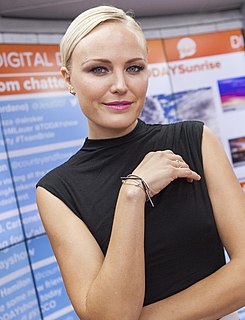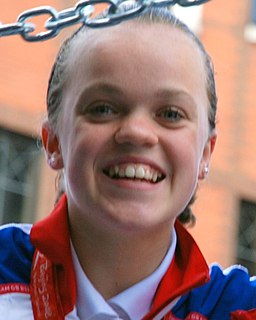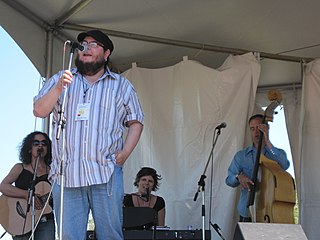A Quote by Terry Goodkind
After that, I came back every year. Everyone said, 'Well, when you retire you can move there.' But I said, 'Why should I live my whole life where I don't want to be.'
Related Quotes
Then he exploded. "No!" he said. That familiar injunction. I'd heard it so many times. "No. I cannot take this steel. It would not be correct." He opened his knife drawer. "It goes here," he said, "until you return."(That's how you leave: by never saying good-bye.)And I learned that: to return. I came back the following year and the year after that. I hope to return every year (after all, I may never have the chance to learn so much), until I have no one to return to. (301)
It was in the back of my mind, even while I was going to school, but it wasn't until I was at university studying engineering that I thought, well what do I really want to do? And I kind of came back to that and I said, well the degrees I'm trying to get are going to qualify me to apply. And so, that's what I did after I finished my, or after I was getting my doctorates. That's when I first applied to NASA.
For years I've wanted to live according to everyone else's morals. I've forced myself to live like everyone else, to look like everyone else. I said what was necessary to join together, even when I felt separate. And after all of this, catastrophe came. Now I wander amid the debris, I am lawless, torn to pieces, alone and accepting to be so, resigned to my singularity and to my infirmities. And I must rebuild a truth-after having lived all my life in a sort of lie.
The thinnest I've ever been was after I had my appendix out, during the London run of The Seagull. I went down to 112 pounds and realized my brain doesn't work when I'm that thin, so I can't do my job. That's why, when I came out here, I never had that whole Hollywood pressure thing. I never said I wanted to be a lead actress; I never said I wanted to be a film actress. This need to trump everyone bewilders me. I'm only 25. I'm not better than anyone. I just want to watch other people and learn to be good.
What I said was I’ll miss you what I meant to say was I love you what I wanted to say was that I meant what I said and it’s funny how all those things I could have said flooded my head after we said goodbye and I should have told you I’d be willing to hold you until my flesh crumbles into bone because I’m willing to die alone but god knows I don’t want to live that way.
One of the last times that we played in the area before I wrote "Allentown," I remember a guy coming up to us and saying, "You're never coming back here." I said, "Why do you say that?" He said, "Well, you're probably gonna become a big star. Nobody who ever becomes big comes back here." And I felt so sad for this kid, he seemed so bitter about it. I said, "Well, I'm coming back, no matter what."
I'm getting a girlfriend soon," said Michael in a serious tone, and everyone laughed. "You've got plenty of time for that, kiddo," said his father. "No need to rush." "Well, I don't want a boyfriend, Daddy," said Madeline. "Boys are dirty, and they make a mess when they eat." "I'd imagine the six-year-old ones would." Xavier chuckled. "But don't worry, they get better at it.
I just remember when my first child was born I called the personnel office and I asked them about their leave policies. And they said, "Leave policies? Women just leave and they don't come back." And I said, "But I want to come back." They said, "We have no leave policy." And then they said, "Why don't you apply for disability?" Well, having a child is not a disability.
I just went to Europe, spent a year traveling, and then I came home with a finished album and said, "Hey everyone I'm back!" I gave everyone their lighters from Luxembourg, gave them the postcards from Italy and Rome, then said, "Hey look, I made a record, too" and played it for them. The general reaction was shock, because it was so different from what they've known me to do.






































